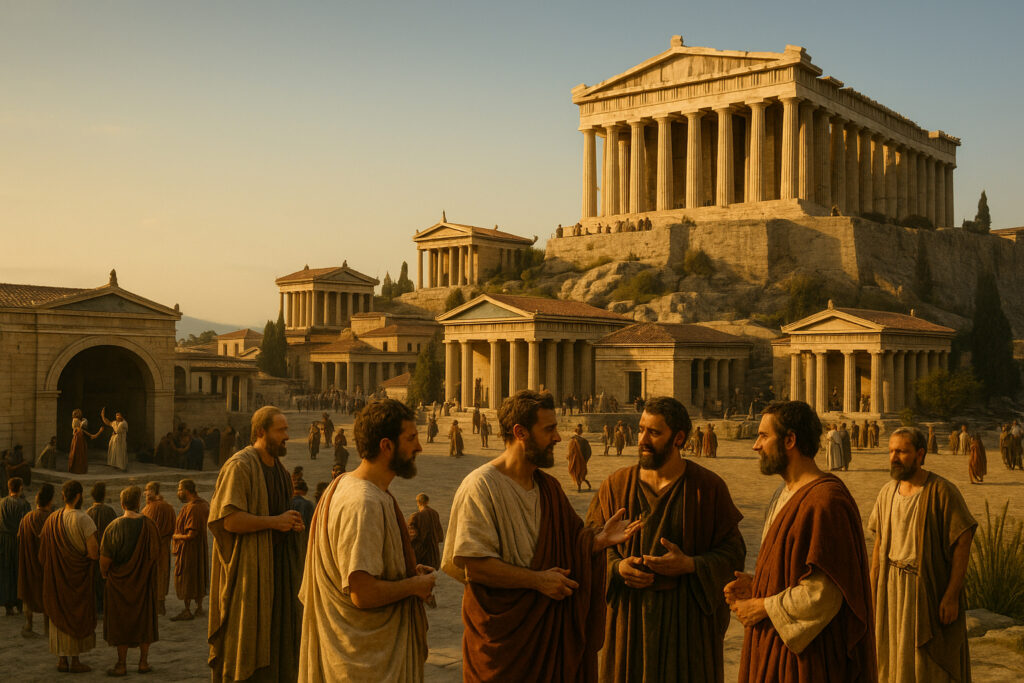Ancient Greece stands as one of the greatest foundations of Western civilization—a birthplace of democracy, philosophy, and art. It was a land where ideas ruled as strongly as kings once did, and where theater became both entertainment and reflection of human nature. The Greeks didn’t just build temples and statues—they built concepts that still shape the modern world.
The Birth of Democracy
In the 5th century BCE, Athens emerged as the cradle of democracy. For the first time, citizens—not monarchs—had the power to shape laws and governance. Leaders like Cleisthenes and Pericles established systems of public debate, civic duty, and equality before the law. Although limited to male citizens, this early democracy planted the seeds of political participation and accountability that continue to define societies today.
The Stage as a Mirror of Society
While politics thrived in the assembly, creativity flourished in the amphitheater. Greek drama—tragedy and comedy alike—became a cultural phenomenon. Playwrights such as Aeschylus, Sophocles, Euripides, and Aristophanes explored timeless themes of justice, pride, love, and fate. Through drama, the Greeks examined human flaws and divine power, offering both moral lessons and emotional catharsis. Theater became a civic experience—an extension of the democratic spirit.
Philosophy and the Pursuit of Truth
Greek thinkers like Socrates, Plato, and Aristotle revolutionized how people understood ethics, logic, and the universe. They asked questions that still define human inquiry: What is justice? What is the good life? Their emphasis on reason, debate, and knowledge transformed education and governance alike, forming the intellectual backbone of democracy.
Architecture, Art, and Legacy
The Greeks expressed their ideals through beauty and proportion. The Parthenon symbolized harmony and civic pride, while sculptures captured human perfection in motion. Art celebrated both gods and mortals, reflecting a society that valued intellect, balance, and excellence (arete). These achievements became blueprints for Renaissance and modern aesthetics.
Conclusion
The glory of Greece lies not just in marble monuments or epic tales, but in the ideas that continue to shape humanity. Democracy gave people a voice; drama gave them emotion; philosophy gave them reason. Together, they forged a civilization that still inspires our search for truth, justice, and beauty.
